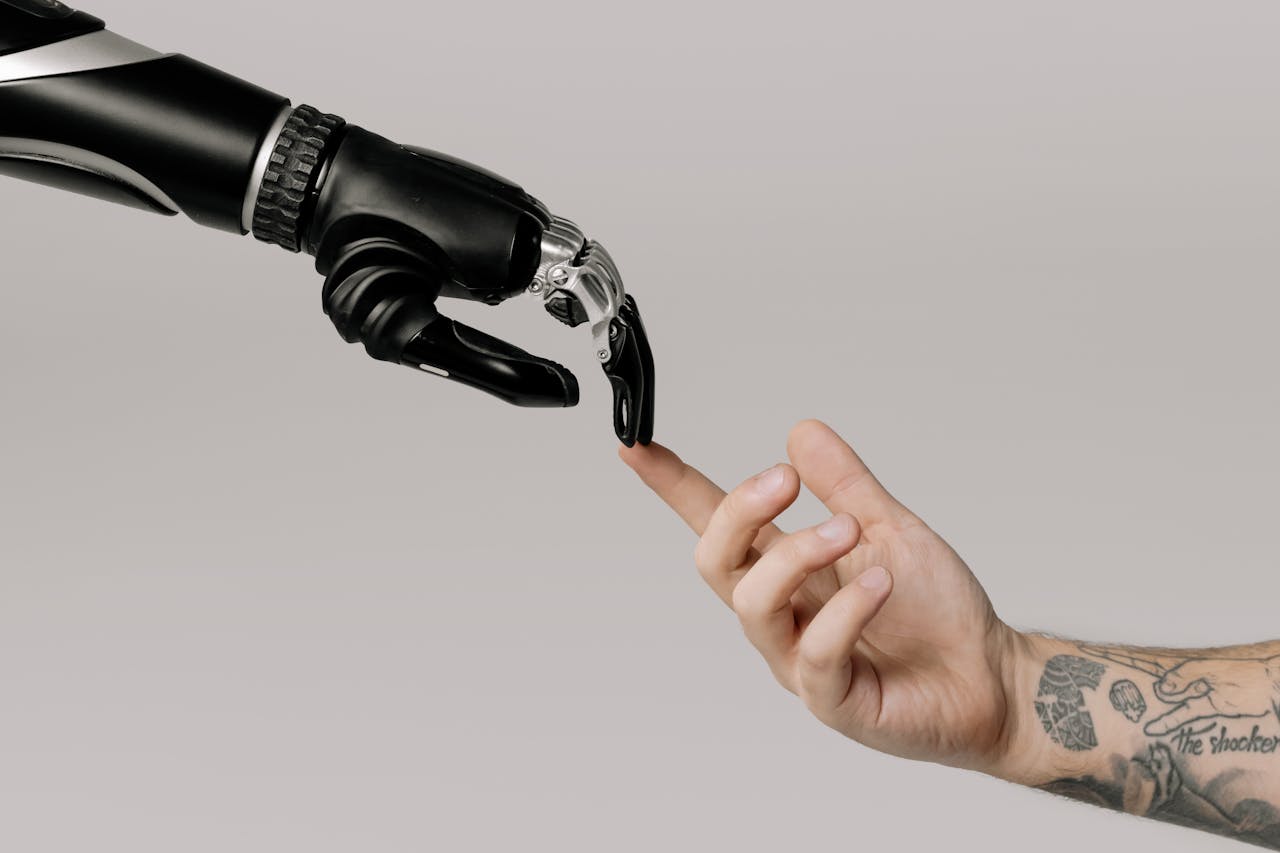Applications of Artificial Intelligence in Healthcare
Artificial Intelligence (AI) is revolutionizing industries across the globe, and healthcare is no exception. By leveraging machine learning, natural language processing, and advanced data analytics, AI is transforming how we diagnose, treat, and manage diseases. But what exactly does this mean for healthcare? Let’s dive into the myriad ways AI is making waves in the medical field.
Early Use of AI in Medicine
AI in healthcare isn’t entirely new. In the 1970s, the first attempts to use AI in medicine involved basic algorithms to assist with diagnosis and treatment recommendations. These early systems, although rudimentary, laid the groundwork for the sophisticated AI applications we see today.
Evolution Over the Decades
Over the years, AI has evolved significantly. From basic rule-based systems to advanced machine learning models, AI has continually improved its ability to process vast amounts of data and provide actionable insights. This evolution has been driven by advancements in computing power, data availability, and algorithmic development.
Current Applications of AI in Healthcare
Diagnostics and Imaging
Radiology and AI
Radiology has seen one of the most significant impacts of AI. Machine learning algorithms can analyze medical images with remarkable accuracy, identifying abnormalities that might be missed by the human eye. For instance, AI systems are now being used to detect early signs of cancers, fractures, and other conditions in X-rays and MRIs.
Pathology and AI
Similarly, in pathology, AI is being used to examine tissue samples and detect diseases at a microscopic level. These AI-powered tools can process and analyze slides much faster than a human, providing quick and accurate results that are crucial for timely treatment.
Predictive Analytics
Patient Risk Assessment
AI excels in predictive analytics, helping healthcare providers assess patient risk. By analyzing historical data, AI can predict which patients are at higher risk of developing certain conditions, allowing for proactive interventions.
Predicting Disease Outbreaks
On a larger scale, AI is also being used to predict disease outbreaks. By monitoring patterns and trends in health data, AI can identify potential outbreaks before they become widespread, enabling public health officials to take preventive measures.
Personalized Medicine
Genomic Data Analysis
Personalized medicine is another area where AI is making a significant impact. By analyzing genomic data, AI can help identify genetic mutations and variations that influence how patients respond to different treatments.
Tailored Treatment Plans
With this information, healthcare providers can develop tailored treatment plans that are specifically designed to work with an individual’s unique genetic makeup, improving the effectiveness of treatments and reducing adverse effects.
Virtual Health Assistants
AI Chatbots
AI-powered virtual health assistants and chatbots are becoming increasingly common. These tools can provide patients with immediate answers to their health-related questions, schedule appointments, and even offer basic medical advice based on the symptoms described.
Remote Monitoring
For chronic disease management, AI systems are used in remote monitoring to track patients’ health status in real-time. This continuous monitoring allows for timely interventions if a patient’s condition begins to deteriorate.
AI in Medical Research
Drug Discovery and Development
AI is transforming drug discovery by significantly reducing the time and cost involved. Machine learning algorithms can analyze vast datasets to identify potential drug candidates, predict their effectiveness, and optimize their chemical structure.
Clinical Trials Optimization
AI also plays a crucial role in clinical trials, from patient recruitment to data analysis. By identifying suitable candidates more efficiently and monitoring their progress, AI helps accelerate the trial process and improve outcomes.
AI in Surgery
Robotic Surgery
Robotic surgery is one of the most well-known applications of AI in healthcare. These systems provide surgeons with enhanced precision, flexibility, and control during operations, leading to better patient outcomes and faster recovery times.
Preoperative Planning
AI assists in preoperative planning by creating detailed 3D models of patients’ anatomy. Surgeons can use these models to plan their procedures more effectively, reducing the risk of complications.
Challenges and Ethical Considerations
Data Privacy Concerns
One of the biggest challenges with AI in healthcare is ensuring data privacy. With vast amounts of sensitive patient data being used, it’s crucial to implement stringent security measures to protect against breaches.
Bias in AI Algorithms
Bias in AI algorithms is another significant concern. If the data used to train AI systems is biased, the outcomes can be skewed, leading to unfair or inaccurate results. Ensuring diversity in training data is essential to mitigate this risk.
Regulatory Challenges
Regulatory challenges also pose a hurdle for the widespread adoption of AI in healthcare. Ensuring that AI systems meet the necessary standards and regulations requires ongoing effort and collaboration between developers, healthcare providers, and regulatory bodies.
Future Prospects of AI in Healthcare
Emerging Technologies
The future of AI in healthcare looks promising with emerging technologies such as quantum computing and advanced robotics. These technologies have the potential to further enhance AI’s capabilities, making healthcare more efficient and effective.
Potential Impact on Global Health
AI’s potential impact on global health is immense. By improving access to quality healthcare and enabling early disease detection, AI can help address some of the most pressing health challenges worldwide, especially in underserved regions.
Conclusion
AI is undoubtedly transforming healthcare, offering numerous benefits from improved diagnostics to personalized treatments and enhanced patient care. While challenges remain, the potential for AI to revolutionize healthcare is immense. As technology continues to evolve, we can expect even more innovative applications that will further improve health outcomes and quality of life.
FAQs
How is AI currently used in diagnostics?
AI is used in diagnostics to analyze medical images, detect diseases, and interpret complex data, providing faster and more accurate results than traditional methods.
What are the benefits of AI in personalized medicine?
AI helps in personalized medicine by analyzing genetic data to create tailored treatment plans, improving the effectiveness of therapies and minimizing side effects.
Are there any risks associated with AI in healthcare?
Yes, risks include data privacy concerns, potential biases in AI algorithms, and regulatory challenges that need to be addressed to ensure safe and equitable use.
How does AI improve surgical procedures?
AI improves surgical procedures by providing enhanced precision through robotic surgery systems and assisting in preoperative planning with detailed anatomical models.
What is the future of AI in healthcare?
The future of AI in healthcare includes advancements in emerging technologies, better global health outcomes, and continued innovation in diagnostics, treatment, and patient care.




